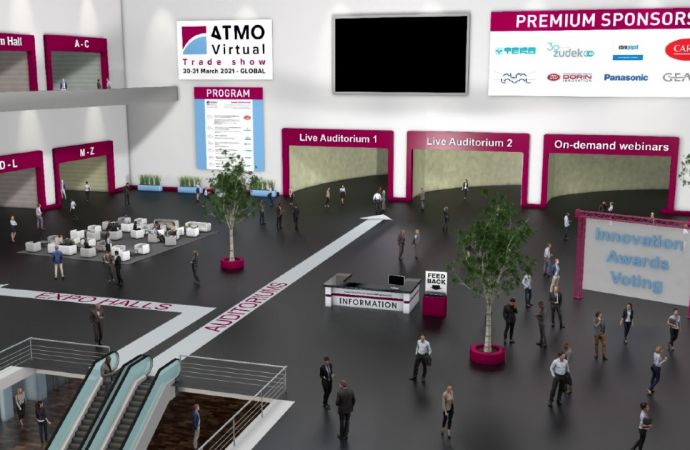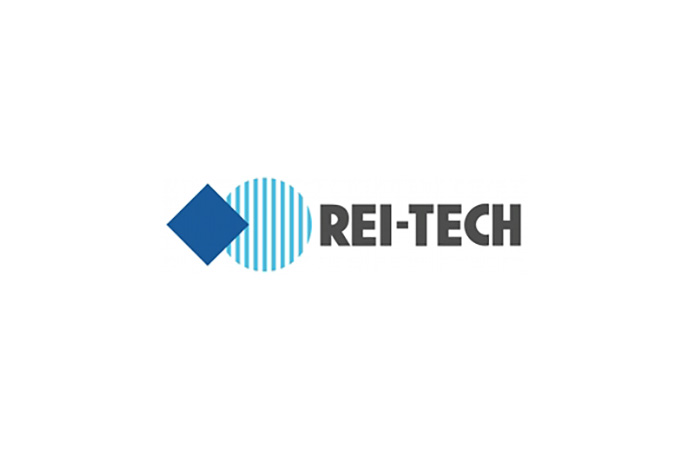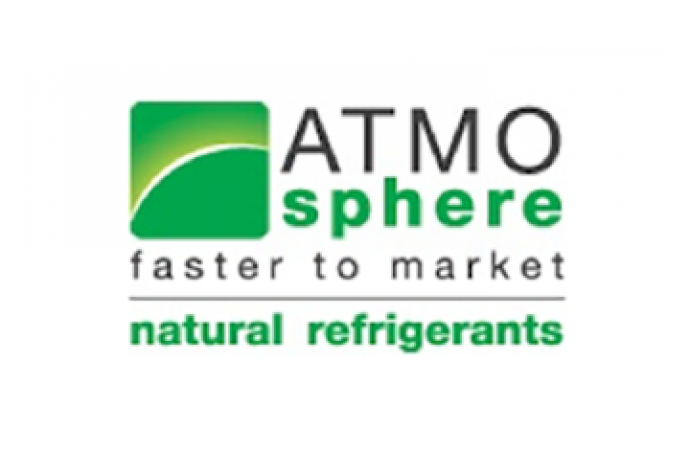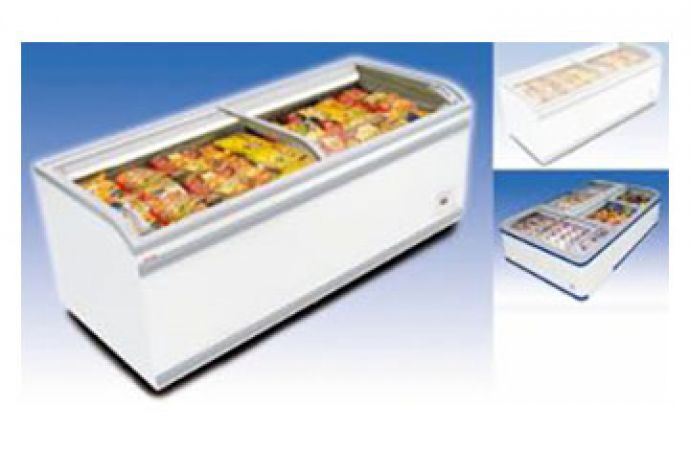At the 2nd edition of ATMOsphere Asia, which took place from 3-5 February 2015 in Tokyo, numerous companies including Red Bull and REI-TECH came together to discuss the latest hydrocarbon market trends and technology innovations, as well as on how to drive the use of hydrocarbon refrigerants in Japan, which until now have not been popular. + VIDEO

ATMOsphere Asia 2015 served once again as the forum for local and international HVAC&R stakeholders to discuss the use of natural refrigerants in a variety of applications including commercial refrigeration. Presentations by leading companies such as Red Bull and cooler supplier REI-TECH pointed to the increasing potential of hydrocarbon (HC) refrigeration for commercial units and drew attention to the need to bring R290 and R600a components faster to the Japanese market. Looking outside Japan, shecco’s Nina Masson pointed to the growing market for HCs in China.
“We would like to fulfill our HC policy in Japan but we are struggling to find and get components for R600a,” Jürgen Brenneis, Red Bull
Jürgen Brenneis, Global Purchasing Manager at Red bull, began his presentation by talking about Refrigerants, Naturally! Started in 2004 and supported by UNEP and Greenpeace, Refrigerants Naturally! is as joint initiative by PepsiCo, Unilever, The Coca Cola Company and Red Bull to replace HFCs with natural refrigerants in beverage coolers and vending machines. Thanks to this initiative, more than 3.5 million HFC free plug-in units have been placed in the market so far, avoiding more than 1.2 million tones of CO2 emissions. Red Bull in particular, which has a presence in more than 166 countries, has a global cooler fleet of 1 million units, of which more than 500,000 units use R600a.
It was in 2008 that Red Bull decided to switch to HCs in order to address the fact that around 40% of the company’s CO2 footprint came from refrigeration. As a result, in 2014 Red Bull succeeded in placing only products using natural refrigerants, with the exception of Japan.
Red Bull’s ECO Coolers are not only more respectful with the environment but also use 45% less energy than other traditional coolers. In order to maximise their performance, they also have LED lights, energy efficient fans and intelligent controllers as well as insulated glass.
According to Brenneis, Red Bull has 10,000 cooler units in Japan, however none of them use HCs due to the negative reputation of this refrigerant. With the company’s market share growing by 25-30% every year, there is a need to find a way forward when it comes to introducing its hydrocarbon ECO Coolers to Japan. Currently, the company faces significant challenges with regards to finding components designed for small sized (15 – 100l) R290 and R600a units in the country. The lack of service partners and training in Japan for these specific products is another barrier.
Brenneis concluded by emphasizing Red Bull’s eagerness to fulfill its HC policy in Japan, which is the only country where this policy has not yet been implemented yet. He called for collaboration among the suppliers attending the session to work together to address these concerns.
REI-TECH’s aim: to have 100% of its showcases using HCs by 2020
Kazuhiro Tatewaki, AHT Marketing Dept. Manager, REI-TECH, a leading Japanese distributor of HVAC&R products, including showcases, refrigeration units and air conditioning units, presented the company’s efforts to further the market share of hydrocarbons and eventually have 100% of its showcases using HCs by 2020. REI-TECH began selling the first AHT R290 cooling system showcases in 2013 and in 2015 the company plans to add two more models employing the same refrigerant. REI-TECH’s global sales grew by 35% between 2013 and 2014, representing an increase of units sold from 3,364 to 5,021.
Tatewaki drew attention to a store run by convenience store (CVS) operator SAVE ON, where AHT closed type showcases have helped the store reduce energy consumption by 77% and electricity bills by 70% per month. The hydrocarbon technology also reduced initial costs by increasing display capacity, as well as helping to reduce waste food caused by changes in temperature.
In addition to SAVE ON REI-TECH’s Asian customers include Lucky, Makro, Vanguard and Vill Market.
Good market perspectives for natural refrigerants in Asia, North America and Europe
Nina Masson, Deputy Managing Director at shecco, provided insights into market and policy trends for natural refrigerants including hydrocarbons, in Asia, North America and Europe. In Europe for example, by the end of 2014 80% of German retailer Aldi Süd’s cabinets were reported to use HCs. Furthermore, the company plans to invest €15 million to open 1,830 climate-friendly stores by the end of 2015, and to fully replace all plug-in units with HCs.
Perhaps the most promising market for HCs outside Europe however, is in China, where, as part of research being undertaken for the first GUIDE China, shecco has counted 325,000 HC ice cream freezers and 380,000 stand-alone HC cabinets. This market is primarily being driven by consumer goods brands.
Initial results to the GUIDE China survey also reveal that 29% of respondents plan to use HCs in the next five years, and that for the time being, the highest market potential for HCs is believed to be in the domestic refrigeration market.
Masson concluded her presentation by providing an overview of the Chinese policies helping to promote natural refriegrants, which include the Chinese HCFC Phase Out Management Plan, which has resulted in the conversion of three compressor production lines to R290 technology, as well as the conversion of 18 RAC production lines to R290.
“We would like to fulfill our HC policy in Japan but we are struggling to find and get components for R600a,” Jürgen Brenneis, Red Bull
Jürgen Brenneis, Global Purchasing Manager at Red bull, began his presentation by talking about Refrigerants, Naturally! Started in 2004 and supported by UNEP and Greenpeace, Refrigerants Naturally! is as joint initiative by PepsiCo, Unilever, The Coca Cola Company and Red Bull to replace HFCs with natural refrigerants in beverage coolers and vending machines. Thanks to this initiative, more than 3.5 million HFC free plug-in units have been placed in the market so far, avoiding more than 1.2 million tones of CO2 emissions. Red Bull in particular, which has a presence in more than 166 countries, has a global cooler fleet of 1 million units, of which more than 500,000 units use R600a.
It was in 2008 that Red Bull decided to switch to HCs in order to address the fact that around 40% of the company’s CO2 footprint came from refrigeration. As a result, in 2014 Red Bull succeeded in placing only products using natural refrigerants, with the exception of Japan.
Red Bull’s ECO Coolers are not only more respectful with the environment but also use 45% less energy than other traditional coolers. In order to maximise their performance, they also have LED lights, energy efficient fans and intelligent controllers as well as insulated glass.
According to Brenneis, Red Bull has 10,000 cooler units in Japan, however none of them use HCs due to the negative reputation of this refrigerant. With the company’s market share growing by 25-30% every year, there is a need to find a way forward when it comes to introducing its hydrocarbon ECO Coolers to Japan. Currently, the company faces significant challenges with regards to finding components designed for small sized (15 – 100l) R290 and R600a units in the country. The lack of service partners and training in Japan for these specific products is another barrier.
Brenneis concluded by emphasizing Red Bull’s eagerness to fulfill its HC policy in Japan, which is the only country where this policy has not yet been implemented yet. He called for collaboration among the suppliers attending the session to work together to address these concerns.
"What can we do to have hydrocarbons in Japan?” Jürgen Brenneis asked participants.
REI-TECH’s aim: to have 100% of its showcases using HCs by 2020
Kazuhiro Tatewaki, AHT Marketing Dept. Manager, REI-TECH, a leading Japanese distributor of HVAC&R products, including showcases, refrigeration units and air conditioning units, presented the company’s efforts to further the market share of hydrocarbons and eventually have 100% of its showcases using HCs by 2020. REI-TECH began selling the first AHT R290 cooling system showcases in 2013 and in 2015 the company plans to add two more models employing the same refrigerant. REI-TECH’s global sales grew by 35% between 2013 and 2014, representing an increase of units sold from 3,364 to 5,021.
Through his case study presentation, Tatewaki explained the benefits of the AHT R290 showcases, including reduced energy consumption, operating costs and reduced waste compared to conventional systems.“Certified by IEC and the VDE, the AHT showcase is a very safe product”, said Tatewaki.
Tatewaki drew attention to a store run by convenience store (CVS) operator SAVE ON, where AHT closed type showcases have helped the store reduce energy consumption by 77% and electricity bills by 70% per month. The hydrocarbon technology also reduced initial costs by increasing display capacity, as well as helping to reduce waste food caused by changes in temperature.
In addition to SAVE ON REI-TECH’s Asian customers include Lucky, Makro, Vanguard and Vill Market.
Good market perspectives for natural refrigerants in Asia, North America and Europe
Nina Masson, Deputy Managing Director at shecco, provided insights into market and policy trends for natural refrigerants including hydrocarbons, in Asia, North America and Europe. In Europe for example, by the end of 2014 80% of German retailer Aldi Süd’s cabinets were reported to use HCs. Furthermore, the company plans to invest €15 million to open 1,830 climate-friendly stores by the end of 2015, and to fully replace all plug-in units with HCs.
Perhaps the most promising market for HCs outside Europe however, is in China, where, as part of research being undertaken for the first GUIDE China, shecco has counted 325,000 HC ice cream freezers and 380,000 stand-alone HC cabinets. This market is primarily being driven by consumer goods brands.
Initial results to the GUIDE China survey also reveal that 29% of respondents plan to use HCs in the next five years, and that for the time being, the highest market potential for HCs is believed to be in the domestic refrigeration market.
Masson concluded her presentation by providing an overview of the Chinese policies helping to promote natural refriegrants, which include the Chinese HCFC Phase Out Management Plan, which has resulted in the conversion of three compressor production lines to R290 technology, as well as the conversion of 18 RAC production lines to R290.
MORE INFORMATION
Related stories







